When a particular product is presented in an extremely simplistic form, it has become harder for ordinary people to recognize the complexity behind it, making us unconscious about what's going on outside of our sight and triggering an over-simplified reaction.
From the end of 2022 to the beginning of 2023, I traveled from the US to Mexico to Japan.

One thing that kept sticking to my mind throughout the trip was about invisible factors turning the complex ingredients into a minimalistic deliverable. In his beautiful writing of Why Information Grows, physicist and scholar César A. Hidalgo defined product as a crystallized form of information. So, when we face crystallized information, how can we perceive the actual complexity embodied in the objects? In other words, how creators who crystallize the instances can help their audiences to better look-n-feel the details of their work? Or, is it an unnecessary consideration at all?
Think of tacos as a sample category of "product." At my first travel destination, Austin, Texas, my friend invited me to explore some restaurants where we find the local's favorite Tex-Mex tacos1. To me, these tacos were obviously complex; there are a lot of flavors and toppings on tortillas, and it has been presented more as a complete meal rather than casual street food:
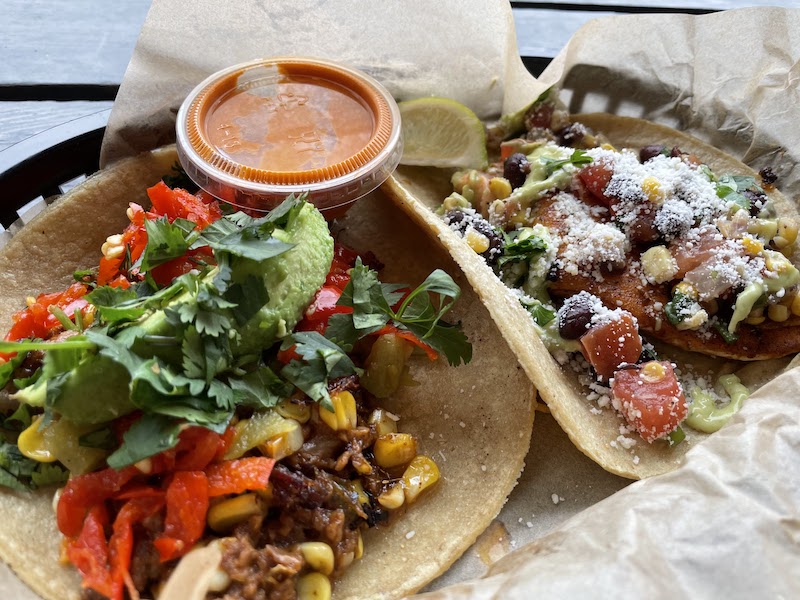
Afterward, we flew to Cancun, Mexico, where many people from Western countries visit for vacation2. Tacos were still as complex as we saw in Texas:
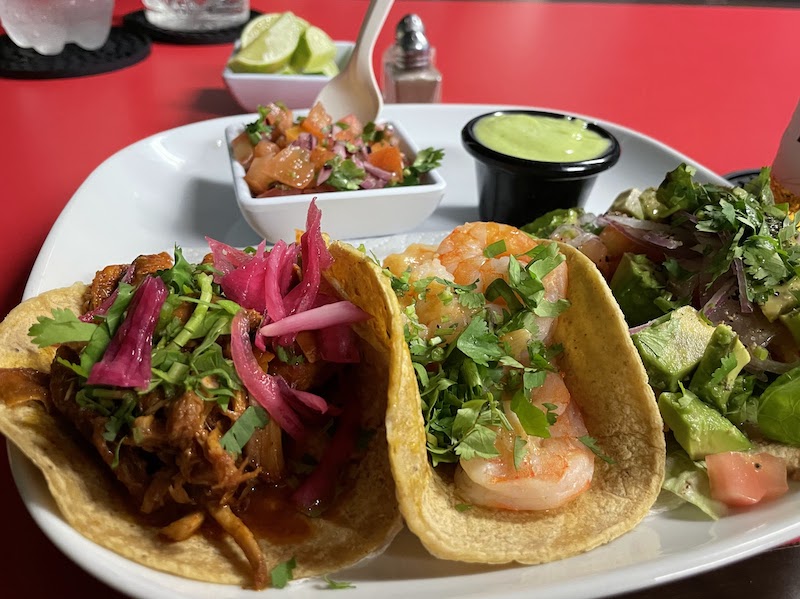
We then moved to Mexico City, the capital and largest city of Mexico situated at an altitude of 2000+ meters. Here, something has changed—Tacos have become significantly simplified on the streets:
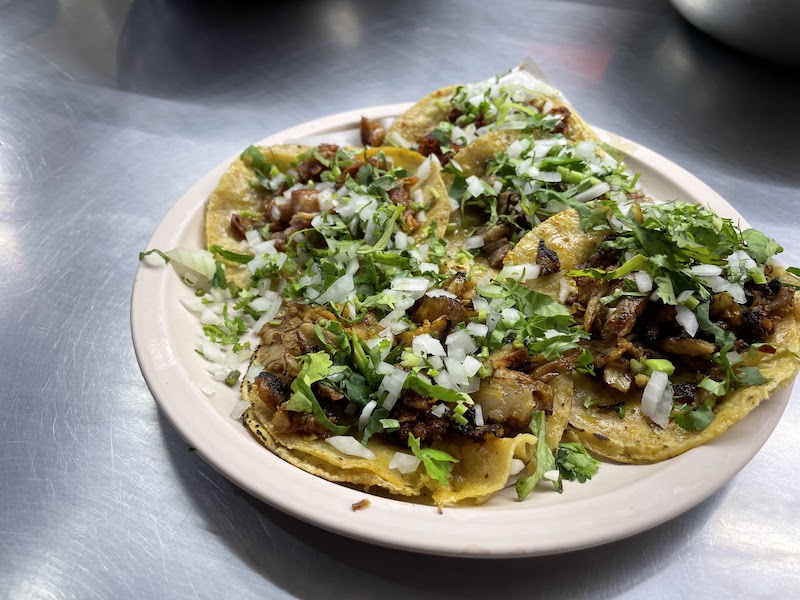
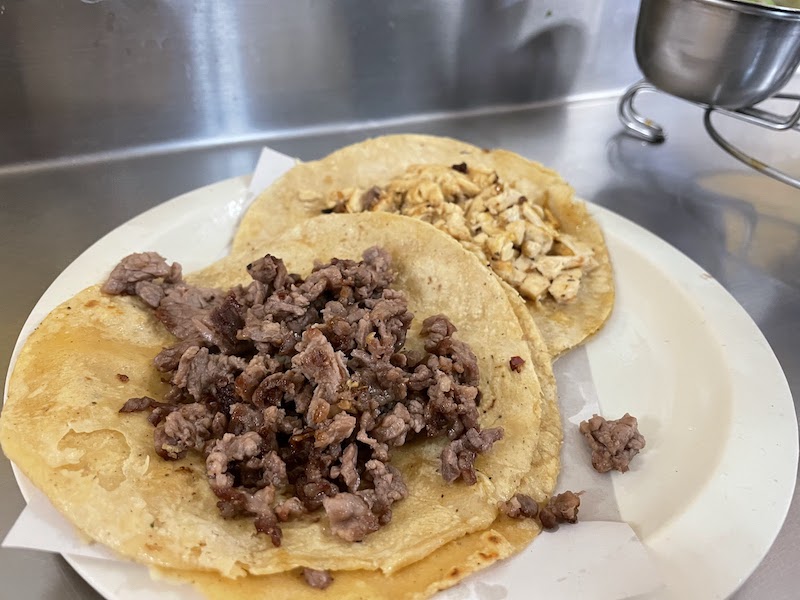
These tacos contain the minimum amount of ingredients, not too fancy, maybe 3.0-3.5 stars out of 5 if I'd give a rating. They were obviously simple to me, and my reaction was more or less: "It's good, period." However, unlike my naive reaction, several friends previously told me tacos in Mexico are fundamentally different from any tacos you can find outside of the country, and they emphasized how good the real tacos are. Really...? Maybe I just overlooked some of the best in the city, but I couldn't get such contexts due to the extreme simplicity of the food.
Not to mention CDMX itself is an extremely complex city I couldn't easily digest. One street in a downtown historic area gives me an impression of European countries, whereas, a couple of blocks away from there, the view resembles a lot of Asia, in my opinion. Meanwhile, along with the complicated history of the Aztecs, many modern cafes and bars co-exist with what locals call "unsafe" off-street sections.3 Nevertheless, people commonly say the superiority of authentic Mexican tacos, but for some reason, I didn't get that.
I also encountered a similar situation after flying to my home country, Japan. During the trip, I visited Kagawa Prefecture. The prefecture is best known for Udon noodles; the region has the highest number of per-capita Udon restaurants and consumption in Japan.4 Here, like tacos, many friends equally mentioned the superiority of Kagawa's Udon noodles, and they could easily list some of the best Udon restaurants they found in the past. But, I wasn't able to get significant differences.
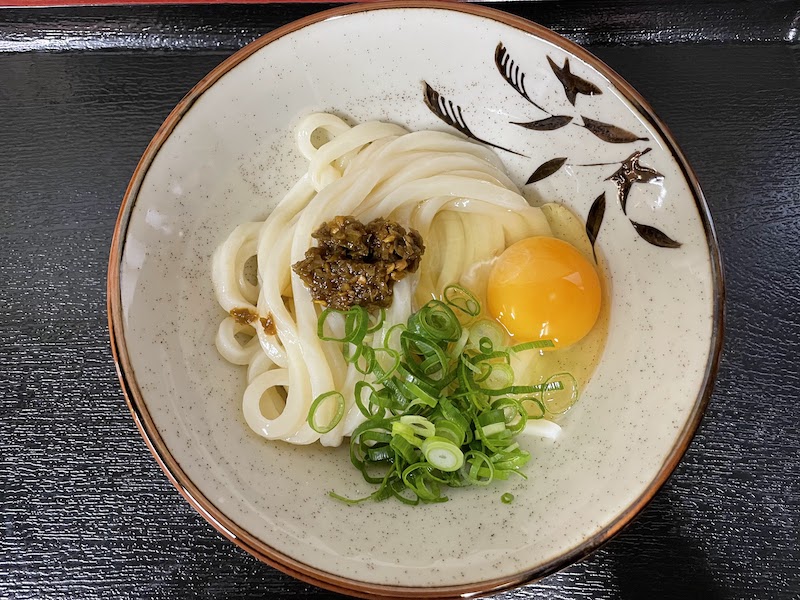
I tried eight different Udon restaurants in 3 days, and even though all of them were great, it was still difficult for me to decode the overly simple bowls of noodles.
Again, when we see extremely-simplified products, like authentic tacos and Udon noodles, making sense of the art and complexity of their production process becomes so hard. Therefore, it is questionable to me whether people who made strong positive arguments were truly able to capture what's going on behind the scene and differentiate them from the ones that have widely been accepted in the world. And, if they indeed were, how did they extract the deeper insights?
Now, consider ChatGPT. Since its release in November 2022, I've seen the application as an example of simplified products that made underlying efforts overly invisible to the public. Really, more than half of the people I talked to during the 2-month travel brought up something about the state-of-the-art chatbot in our conversation, and most of them were very positive, just showing some sort of excitement. I agree it is a great application that unlocks a lot of possibilities for the future, but are we talking about the superiority after knowing all the contexts that might exist behind the screen, such as the history of AI development5, how data pipeline is implemented6, and human labors working hard to make the model more accurate7?
Tacos in Mexico, Udon noodles in Kagawa, ChatGPT in AI—All of them are undoubtedly great products that elegantly crystallized the ingredients. However, I personally believe it is important not to fall to an easy conclusion like "this is cool" without double-clicking our intuition. Ultimately, there may be an area where simplicity and complexity can co-exist at a surface level of the product and balance the views of producers and consumers.
Sushi can be a great example of such a "just right" degree of complexity. One night in Tokyo, I went to one of the high-quality Omakase-style Sushi restaurants. In a word, their Sushi was informative; as you may know, the presentation of Sushi is so simple, but once I tasted them, I immediately felt "something complicated is happening in it."

In my vocabulary, I don't have a phrase that best describes the information-rich state, which was neither simple nor complex. This balance allows consumers to pause for a second and understand further implications the product may pose. That is, a well-designed product naturally stimulates consumers' attention to hidden variables, which can be a crucial step to overcoming inequities our society holds by design.
How can we, as a developer of human-facing products, deliver such a Sushi-like experience through crystallized information?
1. According to a Wikipedia article on Tex-Mex, Tex-Mex cuisine is mainly characterized by cheese, meat, and flour tortillas. To me, its significance is rather in the trivial complexity of combining multiple unique ingredients on one plate. ↩
2. In fact, the Mexican government's statistics show more than 80% of the country's international air travelers consist of North/Middle/South American and European countries, with the highest number of arrivals at CUN. ↩
3. Like the other countries in the continent, the history of European colonization and settlement plays a crucial role in forming today's Mexico City. In fact, its founding stories from the indigenous population are also well-recorded, and we can visually see the rich pre-colonial-conquest histories across the city. https://www.history.com/topics/latin-america/distrito-federal ↩
4. Statistics of per-capita number of Udon noodle restaurants: https://todo-ran.com/t/kiji/13485 ↩
5. In Atlas of AI, AI researcher Kate Crawford sheds light on crucial aspects of emerging AI technology that many wealthy people, including developers themselves, have (knowingly) overlooked: labor-intensive underlying data work, military use of technology, biases embedded to its classification systems. They all relate to the history of extraction and exploitation from those who have been disempowered, discriminated against, and harmed by the technologies. ↩
6. OpenAI's well-written document about the iterative deployment of their language model has numerous valuable implications, such as the dynamics of the AI system's output and difficulty in balancing safety and utility. https://openai.com/blog/language-model-safety-and-misuse/ ↩
7. OpenAI provides a tool for feedback collection and content moderation, which demonstrates the necessity of massive human intervention in AI systems. https://openai.com/blog/new-and-improved-content-moderation-tooling/ ↩This article is part of the series: How to Talk About AI
Support
Gift a cup of coffeeShare
Categories
Design Life & Reflection Society & Business
See also
- 2023-12-25
- My 2023 Annual Review: Between Individual and Systems
- 2023-04-07
- Three Perspectives on Large Language Models and Their Emerging Applications
- 2022-01-23
- The Producer-Consumer Gap
Last updated: 2023-02-21
Author: Takuya Kitazawa
I am an independent consultant, mentor, and advocate for sustainable technology development with a decade of experience in AI/ML products, data systems, and digital transformation. Based in Canada and originally from Japan, I have lived and worked globally, including part-time residence in Malawi, Africa. See CV for more information, or contact at [email protected].
NowDisclaimer
- Opinions are my own and do not represent the views of organizations I am/was belonging to.
- I am doing my best to ensure the accuracy and fair use of the information. However, there might be some errors, outdated information, or biased subjective statements because the main purpose of this blog is to jot down my personal thoughts as soon as possible before conducting an extensive investigation. Visitors understand the limitations and rely on any information at their own risk.
- That said, if there is any issue with the content, please contact me so I can take the necessary action.